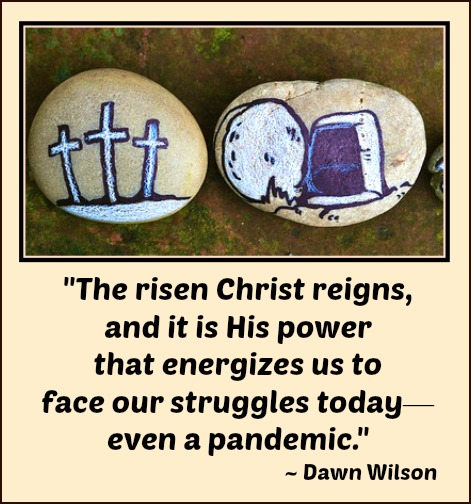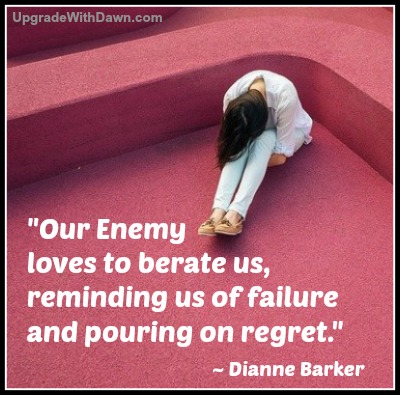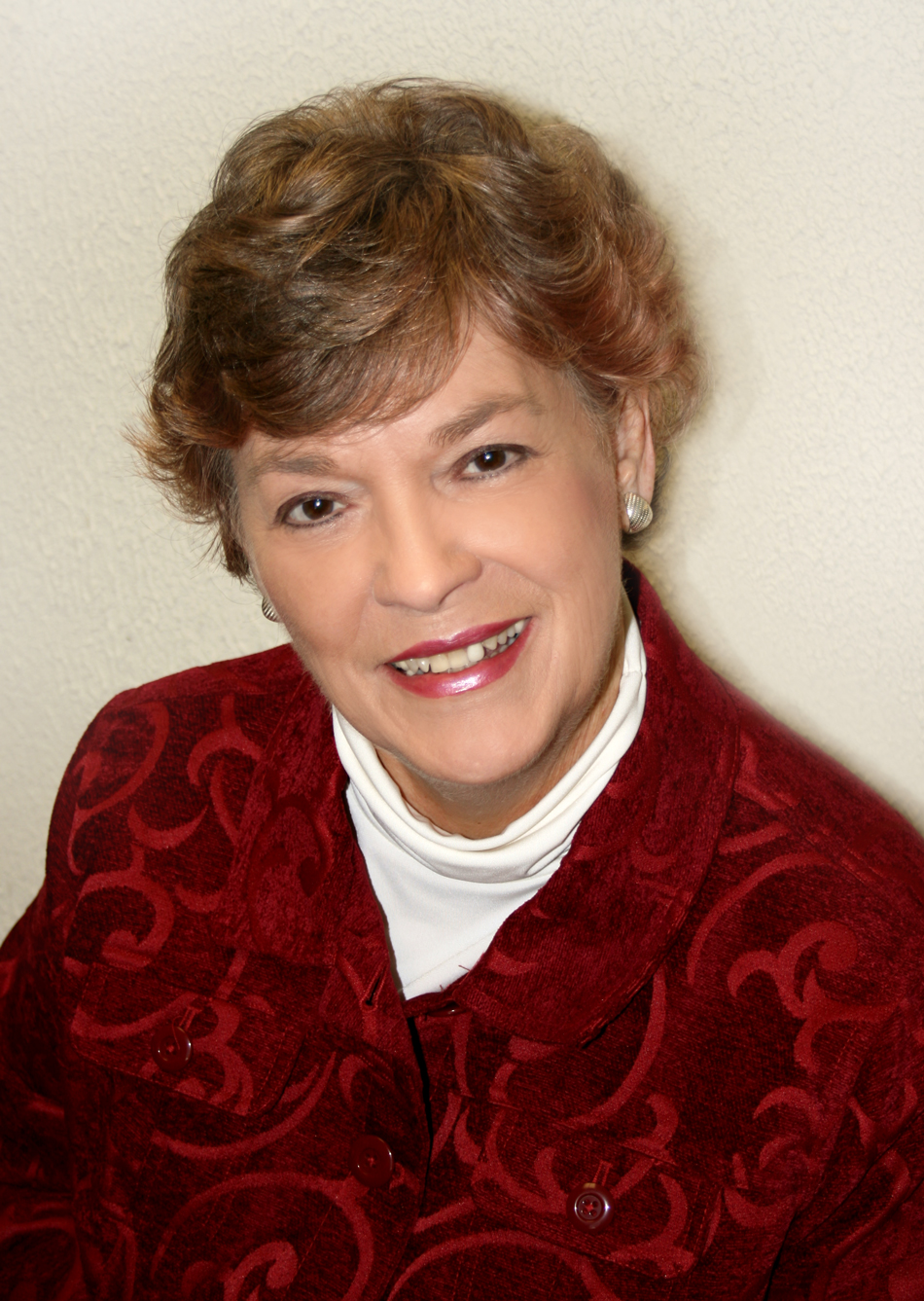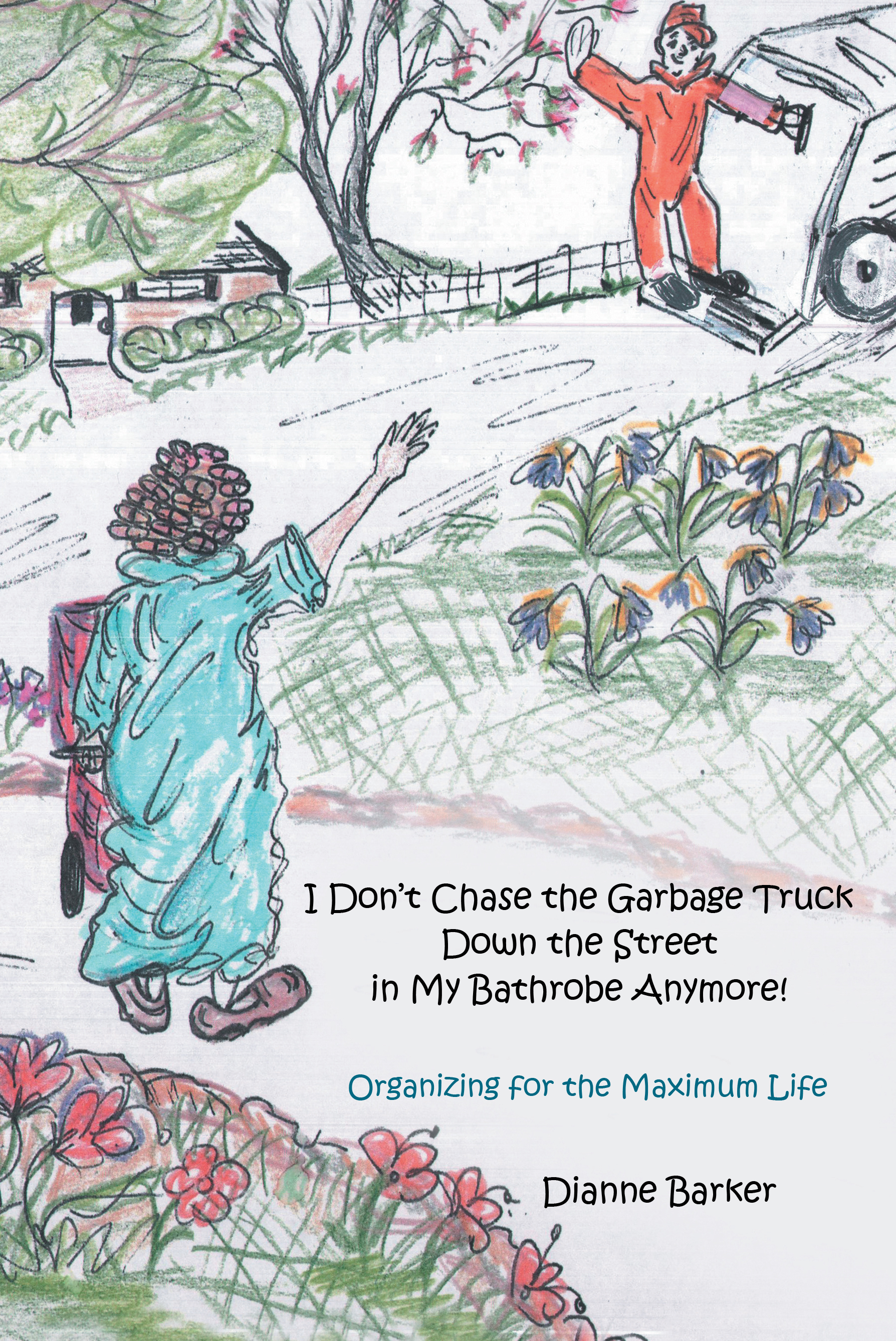In this Trials UPGRADE, Dawn writes about the coronavirus and how Christians might want to respond with biblical thinking.
A week ago, my husband's ministry trip to Ecuador was canceled. My brother-in-law's ministry trip  was canceled (as well as his and his wife's vacation).
was canceled (as well as his and his wife's vacation).
So many ministry friends are rescheduling and hoping new dates will work after the rampant COVID-19, caused by the coronavirus named SARS-CoV-2, turned into a pandemic.
Life with our new normal—at least for months to come—means holding on to our plans with a loose hand.
I'm reminded of the wise words in Proverbs 16:9 (NLT)—"We can make our plans, but the Lord determines our steps." I've always taken that as the Lord desires to create a plan for us to move forward.
God is sovereign and He "determines" our steps. But we still need to listen to His voice and obey when He speaks.
Back in January, knowing I would likely be recovered from a recent stem cell transplant by now, I made a lot of plans for March and April. The Lord had other plans for me.
We make our plans, but when they change, we need to be sensitive to what the Lord might be saying to us about how to deal with those changes!
In this current pandemic, the COVID-19 disease caused by SARS-CoV-2, the Lord is speaking to me about eight "be" concepts in the book of Ephesians—there are likely more—that can help me each day during the required shelter-in-place mandate.
Perhaps they will help you focus too.
"Be" ... in Ephesians
1. Be Still
Althought the word "be" isn't in Ephesians 1:17-21, it is a prayer Paul prayed for Christ-followers to help them become better acquainted with God (v. 17b).
In essence, Paul encouraged believers to do what the psalmist said in Psalm 46:10:
Be still and know that I am God; I will be exalted among the nations, I will be exalted in the earth.
Paul said he wanted believers to have wisdom from God, with the "eyes" of their hearts enlightened. And why? So they might "know the hope" to which He has called us. We have hope IN the Lord, and we can receive hope FROM the Lord.
Our hope is based in God's "power for us."
The risen Christ reigns, and it is His power that energizes us to face our struggles today—even a pandemic.
We need to be still and contemplate who God is, and the power we have in the mighty "exalted" One!
2. Be Wise
Ephesians 5:15-16 says we should "be very careful" how we live. We need to live with God's wise truths in mind. Why? "Because the days are evil."
We need to make wise choices in these days, and make the most of every opportunity we have to live for the Lord and proclaim who He is.
Verses 18-20 compare foolish living with wise living. Rather than indulging in things that will dull our senses, we need to be fully engaged by making the wise choice to "be filled" with the Spirit—another powerful "be" concept.
When we filled with the Spirit and making wise choices, we will speak and sing things that glorify our Father God, and we will be grateful.
3. Be Patient
Ephesians 4:2 reminds us to "be completely humble and gentle; be patient...."
Although I focused here on patience, don't miss the link to humility and gentleness!
- It takes humility to be patient in long lines at stores or airports.
- It takes humility and a patient, gentle spirit to be bear up with kids who are getting on our "last nerve" during pandemic.
- It takes patience when members of our family are going stir crazy—not knowing how to deal with sudden boredom, or reacting with anger born out of frustration.
- It takes patience when quarantined.
I'm sure you can think of other examples where patient humility and gentleness must be the rule of the day.
4. Be Compassionate
It's important to remember we are not alone in this coronavirus struggle.
This is not a time for "it's all about me."
Spiritual maturity will help us live out Ephesians 4:32a: "Be kind and compassionate to one another, forgiving each other...."
In times of crisis, we may feel like we're one minute away from a meltdown.
It's easy to become self-focused. It's easy to over-react when we feel slighted or hurt by others.
This is the time to forgive with Christ-like forgiveness—("...just as in Christ God forgave you" (4:32b).
This is the time to be kind and compassionate. This is the time to give people the benefit of the doubt and be understanding—and when necessary, to show mercy!
Others are going through tough times too, and they may not know how to cope.
5. Be Loving
We are to follow God's example as His beloved children (Ephesians 5:1). We need to be "rooted and established in (His) love"—the love of Christ (Ephesians 3:16-19).
Loving like Christ is not an option for the believer. It's part of our godly stewardship.
Joe Carter, editor of TGC Weekly (The Gospel Coalition) wrote, "While Christians rightly poiint out that God is sovereign over all things—including the economy—we whould also recognize that we have a role to play as stewards of God's creation. ... Ultimately, stewardship is all about love."
Years ago, it seemed everyone was asking, "What Would Jesus Do?" In the stewardship of love, we seek to see people and their needs through the eyes of the Lord.
And as much as possible, and as the Lord leads, we move in love to meet needs.
It may mean something like:
- buying a package of baby wipes for a mom with little ones,
- taking a meal to a shut-in (and lingering for a conversation if he or she seems lonely), or
- filling a tank with gasoline for a doctor or nurse who still reports for duty to help those with COVID-19.
What would Jesus Do?
6. Be Light
In times of crisis, this is often the opportune time to "be light" in the darkness.
In Ephesians 5:8-10, Paul reminded the Ephesian believers they were once in spiritual darkness, "but now," he said, "you are light in the Lord."
We need to recognize we are all lost and in spiritual darkness without the Lord and His mercy. We need to remember the grace of the Lord Jesus to us from the cross.
When we remember well, we will likely want to "live as children of light." We will to make a difference in people's lives around us, and we'll want our attitudes and actions to please Him. We'll want to "shine as lights in the world" and allow our good works to glorify the Father (Philippians 2:15; Matthew 5:16).
Paul made a special request of the Ephesian believers. He wanted them to pray he would be fearless in sharing the Gospel (6:19-20).
And that should be the prayer we pray for ourselves and our brothers and sisters in Christ as we shine together for the Lord.
7. Be Strong
In these stressful times, it is important that we "be strong in the Lord and in his mighty power" (Ephesians 6:10-12). Our own strength may wane as we struggle with all the changes we need to make in fighting this pandemic.
We're supposed to wear the "armor of God" every day, but it's important to be SURE we're wearing it now (Ephesians 6:13-17) so we can "be strong and courageous" (Deuteronomy 31:6).
And when the battle gets especially tough, we need to remember to run to our refuge in God—He is our "strong tower" of safely (Psalm 46:1-3; Proverbs 18:10).
8. Be Alert
Ephesians 6:18 says, "be alert and always keep on praying for all the Lord's people."
Although we need to be loving and compassionate to all people, this is a special admonition to be alert to the needs of our brothers and sisters in Christ.
We may not have the needed resource to help them in practical ways, but we always have the resource of prayer to petition God for their needs.
As we live as children of light, we also need to be alert to our adversary's strategies to attack God's flock (1 Peter 5:8).
Believers can have tough physical needs during times of trial—but sometimes the attacks of Satan in their minds and hearts are just as tough and destructive.
Be alert to ways you can encourage individual members of the family of God who are struggling with Satan's lies.
Be aware of fresh action steps that can lead to your growth, others' good, and God's glory.
Which of these "Be" concepts are you practicing now? Is there another "Be" you might consider?
Dawn Wilson, founder and President of Heart Choices Today, is a speaker and author,  and the creator the blog, Upgrade with Dawn. She is a contracted researcher/reviewer for women's teacher and revivalist, Nancy DeMoss Wolgemuth, at Revive Our Hearts, a blogger at TrueWoman.com, writes wiki-type posts at Christianity.com, and is a regular columnist at Crosswalk.com. She and her husband Bob live in sunny Southern California, and Dawn has traveled with Him in Pacesetter Global Outreach. They have two grown, married sons, three granddaughters and a rascally maltipoo, Roscoe.
and the creator the blog, Upgrade with Dawn. She is a contracted researcher/reviewer for women's teacher and revivalist, Nancy DeMoss Wolgemuth, at Revive Our Hearts, a blogger at TrueWoman.com, writes wiki-type posts at Christianity.com, and is a regular columnist at Crosswalk.com. She and her husband Bob live in sunny Southern California, and Dawn has traveled with Him in Pacesetter Global Outreach. They have two grown, married sons, three granddaughters and a rascally maltipoo, Roscoe.
Graphic adapted, initial graphic courtesty of congerdesign at Pixabay.
 Dianne asks, "Are you looking back on what appears to be a colossal failure?"
Dianne asks, "Are you looking back on what appears to be a colossal failure?" Dianne Barker is a speaker, radio host, and author of 11 books, including the best-selling Twice Pardoned and award-winning I Don’t Chase the Garbage Truck
Dianne Barker is a speaker, radio host, and author of 11 books, including the best-selling Twice Pardoned and award-winning I Don’t Chase the Garbage Truck  Down the Street in My Bathrobe Anymore! Organizing for the Maximum Life. She’s a member of Advanced Writers and Speakers Association, Christian Authors Network, and Word Weavers International. Visit her blog for more information. www.diannebarker.com.
Down the Street in My Bathrobe Anymore! Organizing for the Maximum Life. She’s a member of Advanced Writers and Speakers Association, Christian Authors Network, and Word Weavers International. Visit her blog for more information. www.diannebarker.com. Post a Comment → Posted on
Post a Comment → Posted on  Thursday, October 15, 2020 at 9:14AM
Thursday, October 15, 2020 at 9:14AM  Failure,
Failure,  Failures,
Failures,  Feelings of Failure,
Feelings of Failure,  Forgiven,
Forgiven,  Forgiveness,
Forgiveness,  Hindsight,
Hindsight,  Phil. 3:13,
Phil. 3:13,  Regrets Upgrade Your Life
Regrets Upgrade Your Life  Attitudes,
Attitudes,  Perspective,
Perspective,  Spiritual Growth
Spiritual Growth 














